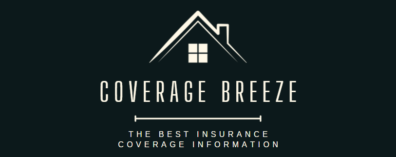Navigating the world of car insurance can be tricky. Many drivers end up with policies that don’t suit their needs or overpay for coverage. To help you make informed decisions, here’s a list of the top 10 mistakes to avoid when purchasing car insurance.

1. Ignoring Coverage Details
Not understanding the specifics of your policy can lead to nasty surprises when you need to make a claim. Ensure you know what’s covered, the limits of coverage, and any deductibles.
2. Choosing the Cheapest Policy
While budget is important, the cheapest policy may not offer adequate protection. Evaluate the cost against the coverage provided to ensure you’re not underinsured.
3. Not Shopping Around
Loyalty doesn’t always pay off in the insurance world. Rates vary significantly between providers, so it’s beneficial to shop around and compare quotes.
4. Overlooking Discounts
Many insurers offer discounts for safe driving, multiple vehicles, good students, and more. Make sure to ask about all available discounts to lower your premiums.
5. Not Updating Your Policy
Life changes, like moving to a new area, changing jobs, or adding a driver, can affect your insurance rates. Update your policy accordingly to ensure it reflects your current situation.
6. Misunderstanding Deductible Implications
A higher deductible can lower your premiums, but it also means more out-of-pocket expenses in an accident. Choose a deductible that balances affordability with financial security.
7. Underestimating Mileage
Underreporting your mileage can invalidate your policy. Be honest about how much you drive to ensure your coverage is valid when you need it.
8. Not Considering Additional Coverage
Basic policies might not cover everything. Consider additional options like collision, comprehensive, and uninsured motorist coverage based on your needs.
9. Ignoring Policy Exclusions
Every policy has exclusions. Understand what your policy does not cover to avoid unexpected costs and consider additional coverage if necessary.
10. Failing to Review and Compare Policies Annually
Insurance needs can change yearly. Regularly review and compare policies to ensure you’re getting the best deal for your current situation.
Smart Car Insurance Choices
Avoiding these common mistakes can lead to better coverage and potentially save you money. Remember, the right car insurance policy is one that provides adequate protection tailored to your specific needs and driving habits.
1. Understanding Your Coverage
To avoid misunderstandings, thoroughly read your policy documents and ask your insurance agent to clarify any confusing terms. Knowing exactly what your policy covers can prevent unexpected expenses during claims.
2. Balancing Cost and Coverage
Instead of just picking the cheapest option, compare different policies to find one that offers a good balance between cost and coverage. Ensure the policy provides adequate protection for your needs.
3. Shopping Around for Better Rates
Annually compare insurance quotes from different providers to ensure you’re getting the best deal. Online comparison tools can be particularly helpful in this process.
4. Maximizing Discounts
Inquire about all available discounts such as for safe driving, anti-theft devices, or bundling policies. These discounts can significantly lower your premiums.
5. Keeping Your Policy Updated
Regularly update your policy to reflect changes in your life, like a new address, a different vehicle, or a change in your driving habits. This ensures your coverage remains relevant and accurate.
6. Choosing the Right Deductible
Select a deductible that you can comfortably afford in case of a claim. A higher deductible can reduce your premiums, but it shouldn’t be a financial burden in the event of an accident.
7. Accurately Reporting Mileage
Be honest about your vehicle’s mileage. Underestimating can lead to policy issues, while overestimating could mean you’re paying more than necessary.
8. Considering All Necessary Coverage
Evaluate your needs for additional coverage like collision, comprehensive, or uninsured motorist protection. Tailor your policy to cover risks relevant to your driving environment and vehicle value.
9. Being Aware of Policy Exclusions
Understand what is not covered by your policy to avoid surprises. If necessary, seek additional coverage to fill in any critical gaps.
10. Annual Policy Review and Comparison
Make it a habit to review and compare insurance policies each year. This not only ensures you’re getting the best rate but also that your coverage is up-to-date with your current needs.
Navigating Car Insurance Wisely
By addressing these common car insurance mistakes and implementing these solutions, you can ensure that your policy is both cost-effective and adequately protective. Regular reviews, understanding your coverage, and making informed decisions about additional protections are key to securing the right insurance for your vehicle.
What Factors Affect My Car Insurance Rates?
Answer: Several factors influence your car insurance rates, including your driving record, age, type of vehicle, where you live, how much you drive, and your credit score. Understanding these can help you find ways to lower your premiums.
How Do I Choose the Right Deductible?
Answer: Consider your financial situation. If you can afford a higher out-of-pocket cost in the event of a claim, a higher deductible can lower your premiums. However, ensure it’s an amount you can comfortably pay.
Is It Worth Getting Comprehensive and Collision Coverage?
Answer: This depends on your vehicle’s value and your financial situation. If your car is newer or has a high value, these coverages can offer valuable protection. For older, less valuable vehicles, you might opt out to save on premiums.
How Can I Lower My Car Insurance Premiums?
Answer: You can lower your premiums by maintaining a clean driving record, choosing a car that’s cheaper to insure, increasing your deductible, taking advantage of discounts, and regularly comparing insurance quotes.
Should I Report Minor Accidents to My Insurance Company?
Answer: Yes, it’s generally a good idea to report any accident, no matter how minor. Not reporting could violate your policy terms and might lead to issues if the other party decides to claim later.
Can I Change My Car Insurance Policy Mid-Term?
Answer: Yes, most insurance companies allow you to update or change your policy at any time. However, be aware of any potential fees or rate changes associated with making changes mid-term.
Does Credit Score Really Affect Insurance Rates?
Answer: In many states, yes. Insurers often use credit scores as one factor in determining premiums, with the idea that a higher credit score indicates more responsible financial behavior.
What is the Difference Between Liability Coverage and Full Coverage?
Answer: Liability coverage only covers damage you cause to others and their property. Full coverage typically includes liability, plus collision and comprehensive coverage, which protect your vehicle in most scenarios.
How Often Should I Shop for New Car Insurance?
Answer: It’s a good practice to shop for new car insurance quotes annually or whenever there’s a significant change in your life, like moving to a new location or changing vehicles.
What Should I Do If My Insurance Premiums Suddenly Increase?
Answer: First, ask your insurer why the increase occurred. Then, shop around to compare rates from other companies. Sometimes, insurers raise rates due to factors like increased claims in your area, but you might find a better deal elsewhere.
Staying Informed on Car Insurance
Keeping these questions and answers in mind can help you navigate the complexities of car insurance. Regularly educating yourself about your policy and the factors affecting your rates ensures that you remain adequately covered while also managing costs effectively.
As an Amazon Associate we earn from qualifying purchases through some links in our articles.




